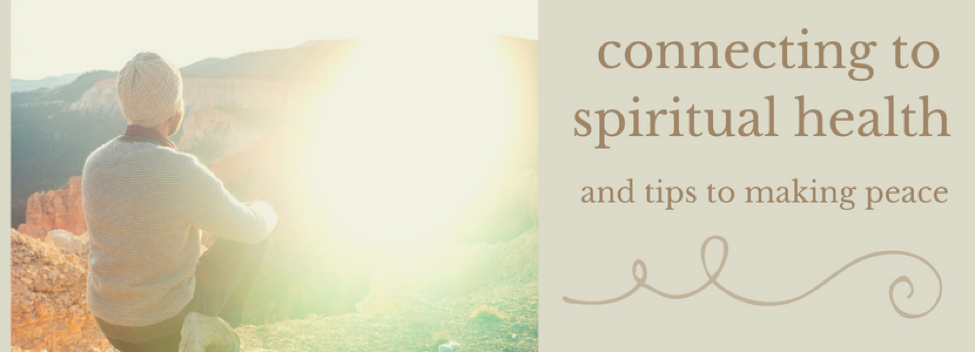
Holistic medicine takes into account the whole person, consisting of physical and mental health as well as spiritual health. It can be a sensitive topic but one that is part of the holistic picture nonetheless.
To preface the discussion, it’s important to note that spirituality does not necessarily mean religion (although to some, it may). It can consist of beliefs and customs of spiritual groups but it also can be life philosophy and how one makes sense of pain, suffering, and one’s purpose in the world. It may also be void of these things.
Spirituality is an individual journey.
Dr. Graves believes, “health and disease are related to pain and suffering which is related to how one makes senes of life and death as a whole.”
Spirituality can affect both physical and mental health in such areas as:
- mood
- happiness
- hope
- anxiety
- depression
- stress management
- immunity
- heart health
- sleep
It can also affect how one relates to hardships, deals with grief, finds purpose, and connects in relationships.
Day in and day out, life can look and feel pretty standard. However, eventually one may experience pain and suffering, wrestling with questions and needing to make sense of it all.
Although this is not a comprehensive examination of how to spiritually connect when this happens, these tips can support the process.
Question and learn
At the start, it may be most important to acknowledge the questions you have.
- Are you feeling apprehensive about beliefs you were brought up with?
- Would you like to learn about other spiritual perspectives?
- Are you longing to create one of your own?
- Do you wonder what pain and suffering is for and/or what happens when one dies?
If you feel a need to explore questions, allow yourself the opportunity to learn. Read books, talk with others, visit spiritual centers, listen to podcasts, etc. and make notes of what speaks to you. Discover what feels right and makes sense to you.
Line up experiences and actions with beliefs and vice versa
Aligning your life with your beliefs can create harmony and wellbeing.
To do this, it’s important to recognize what your perspective, beliefs, and values are and then make choices that support these life foundations.
For some, this may mean a life-makeover but for others, incorporating spirituality into daily life can come from added actions (such as prayer, meditation, forest bathing, journaling, walking, reading) and/or reduction of negative habits (such as self-loathing, blaming others, or gossiping).
Even though it may be impossible to do this perfectly, one can reduce inner conflict by striving to walk the walk.
Find community
Creating connection with others can foster healthy socialization and encourage spiritual health. This can be done by finding an already established group or organization or may be cultivated in other ways such as connection through volunteering, walking/hiking groups, yoga or meditation classes, or discussions with a spouse or children.
Although spirituality can help one make sense of pain and suffering, it’s important to note that it can also create pain and suffering. Mindful awareness can help guide what feels right for you.
For holistic healthcare through naturopathic medicine, acupuncture, herbal supplements, massage, and holistic counseling, please contact us at (303) 688-6698 or click here to schedule an appointment.
The CNMA office provides naturopathic care, acupuncture, testing, massage, and holistic counseling to those in Castle Rock, Castle Pines, Highlands Ranch, Lone Tree, Centennial, Parker, Larkspur, Monument, Colorado Springs, and the greater Denver metro area. For those outside of these areas, virtual appointments are available.
REFERENCES:
https://chopra.com/articles/5-physical-health-benefits-of-spirituality

Leave a Reply